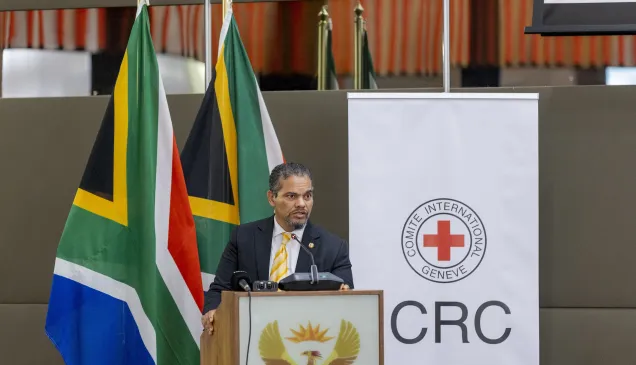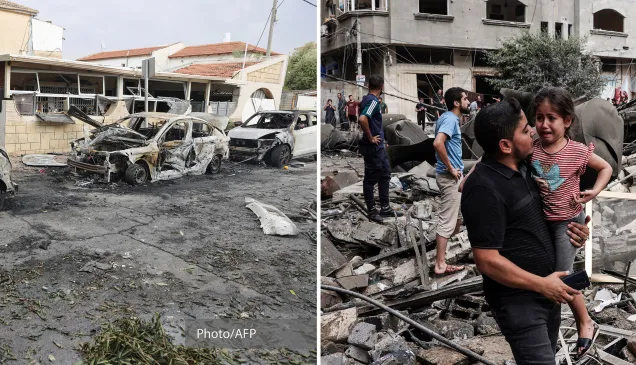International Humanitarian Law Conference in Dublin

As part of ongoing efforts by the ICRC’s regional delegation to the UK & Ireland to promote the 75th anniversary of the Geneva Conventions, a small team participated in this year’s Irish Red Cross International Humanitarian Law (IHL) Conference in Dublin, co-hosted by the Embassy of Switzerland in Ireland.
After opening remarks by the Irish Red Cross and the Swiss Embassy, a keynote speech by Irish Minister of State Sean Fleming was followed by a series of panel events focused on the most pressing issues facing IHL.
Experts discussed the devastating realities of armed conflict for those who live through them, the need for civilians to be better protected and what organisations, States and other parties to conflicts should be doing to respond.
Tweet: https://twitter.com/ICRC/status/1824160944966033537
There was also a focus on Ireland’s role and leadership in advancing IHL implementation and compliance, including efforts to secure a Political Declaration on Explosive Weapons in Populated Areas (EWIPA).
Warfare is changing and is no longer limited to the “physical” space
Looking to the future, the final panel of the day focused on the next 75 years of the Geneva Conventions, exploring trends and threats.
ICRC Tech Policy Advisor and panellist, Dr Alexi Drew highlighted the growing list of digital risks faced by civilians and humanitarians in conflict, the implications of autonomous weapons systems now and in the future, and elaborated on how new legal instruments might help to ensure new technologies do not bring new or greater harm for civilians.
Digital Dilemmas experience
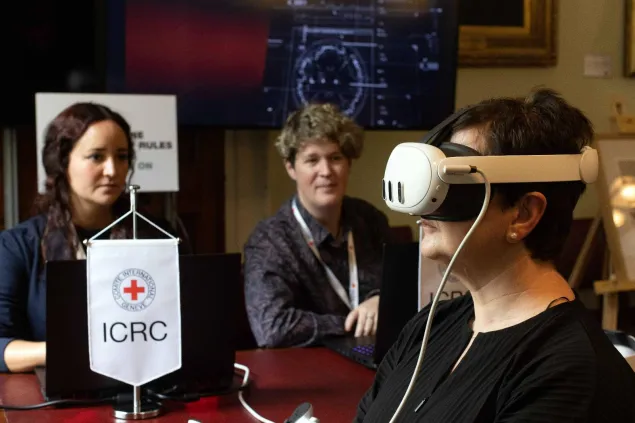
The ICRC showcased the #DigitalDilemmas immersive experience at the conference
During the day, the ICRC UK and Ireland team hosted the #DigitalDilemmas immersive experience at the conference.
Attendees were able to face some of the tough choices that civilians and humanitarians in conflict zones around the world are confronted with on a daily basis.
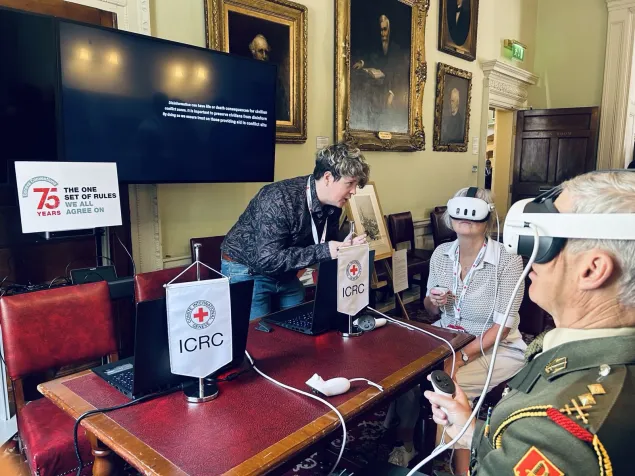
A member of the Irish armed forces, and Irish Red Cross Secretary General Deirdre Garvey experiencing #DigitalDilemmas
The experience highlights how digital tools may give access to critical services – but they can also expose personal data, enable surveillance or exacerbate disinformation, making civilians and humanitarians even more vulnerable.
Closing the event, the ICRC’s Red Cross Red Crescent Movement Advisor Krista Armstrong provided a clear summary of each panel and key themes.
Notable takeaways included the gendered impacts of armed conflict, the protection of medical missions and the lack of respect for IHL being the current single greatest challenge, with the need for States to respect and implement the laws of war.
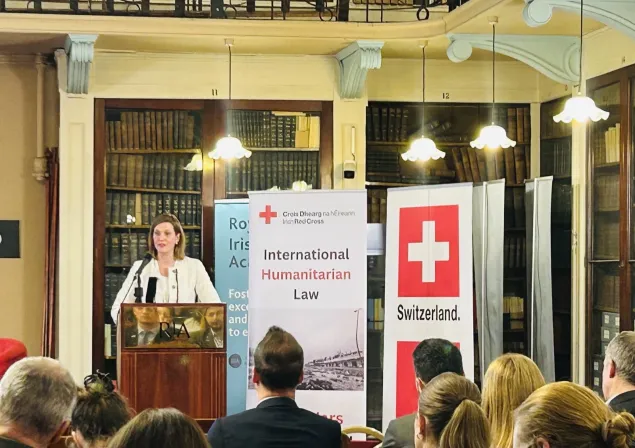
ICRC's Krista Armstrong closing the event
"Every single state has signed up to the Geneva Conventions and freely and voluntarily agreed to be legally bound by the rules they embody," said Armstrong.
"Limiting the human cost of war is essential – and a legal obligation – regardless of how a conflict started. We must not underestimate the strength of the world's agreement on the basic rules of armed conflict."
Secretary General of the Irish Red Cross, Deirdre Garvey, said: “The 75th anniversary of the Geneva Conventions is sadly not one to celebrate, with over 120 armed conflicts ongoing around the world today with deadly consequences for civilians and humanitarian workers.
"Now more than ever, respect for these minimum standards of humanity are needed. The Geneva Conventions are the one set of rules we all agree on and their respect is essential for protecting the most vulnerable in times of conflict. When explosive weapons are used in cities, 90% of those affected are civilians.”

